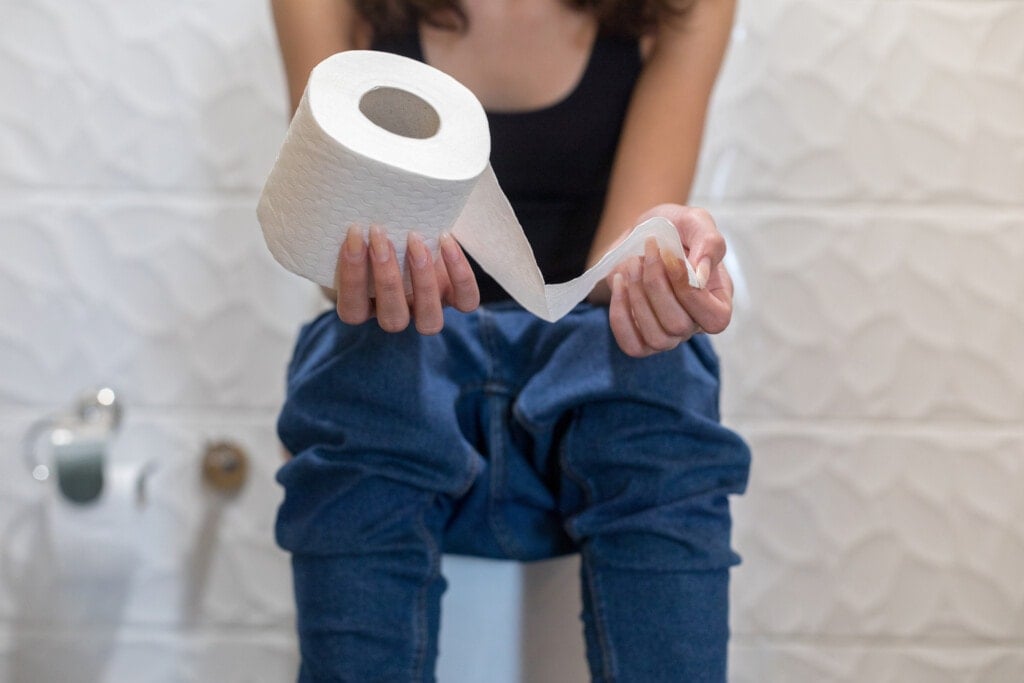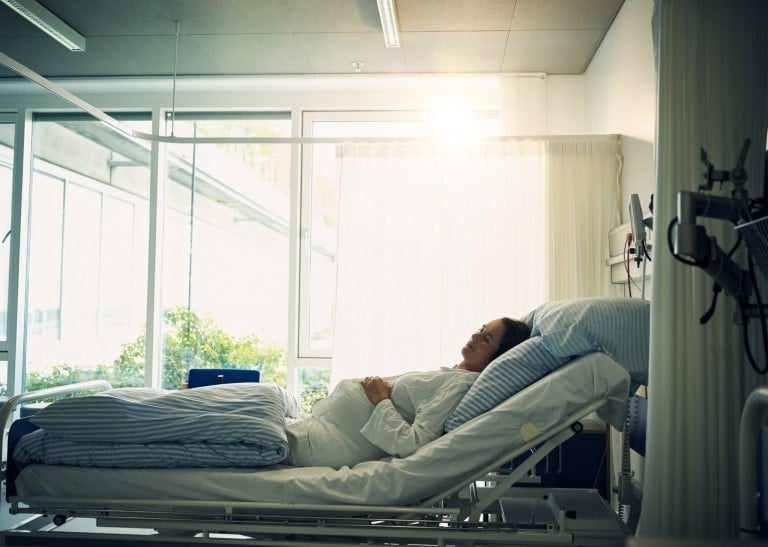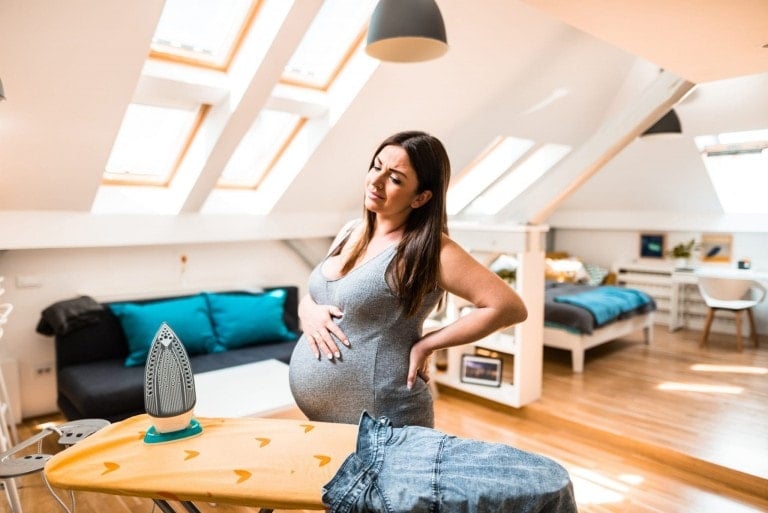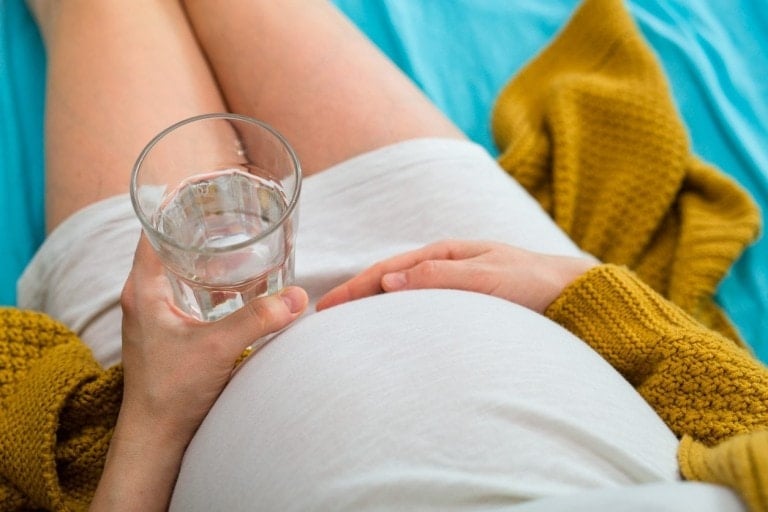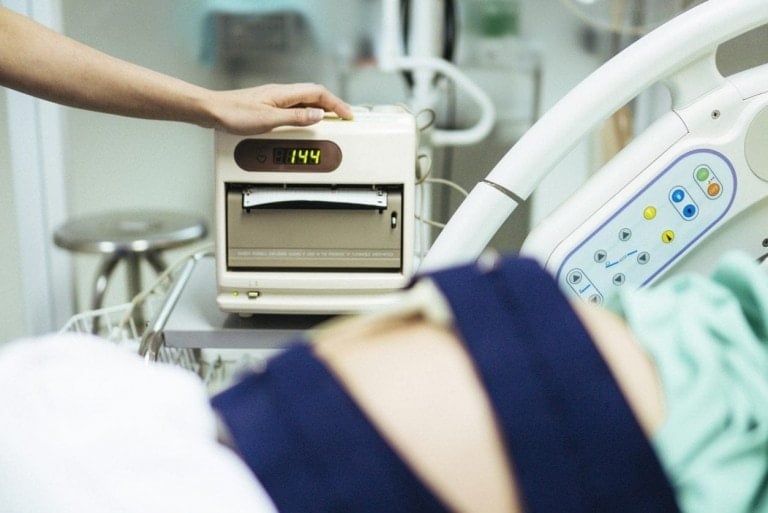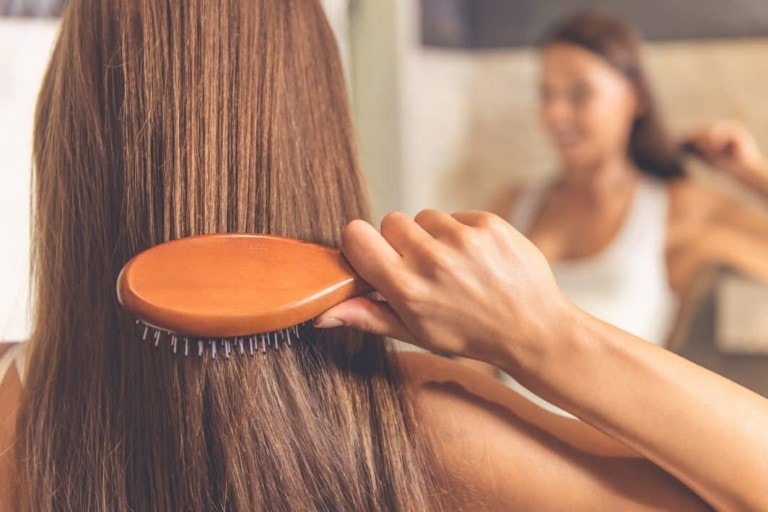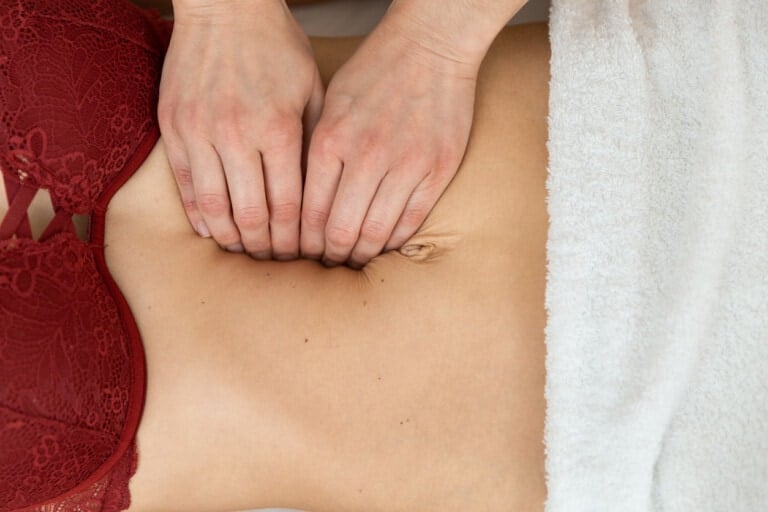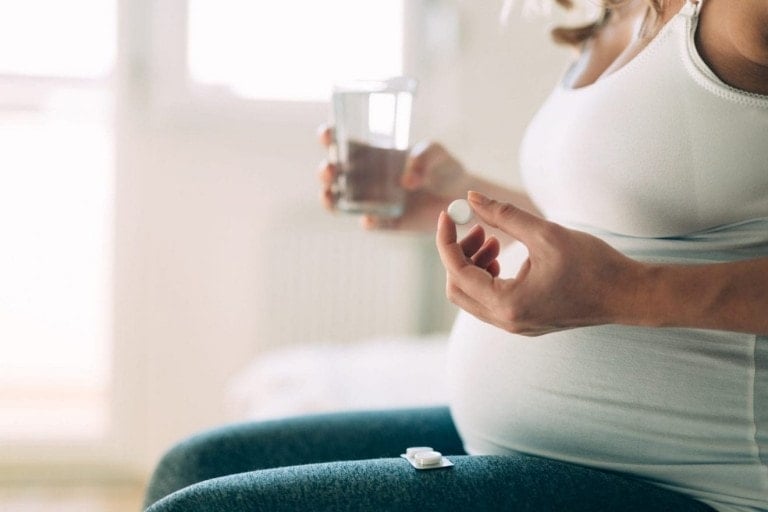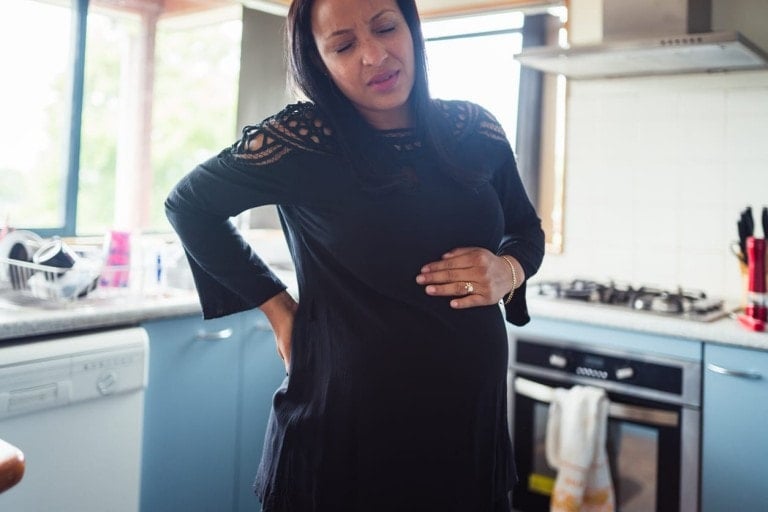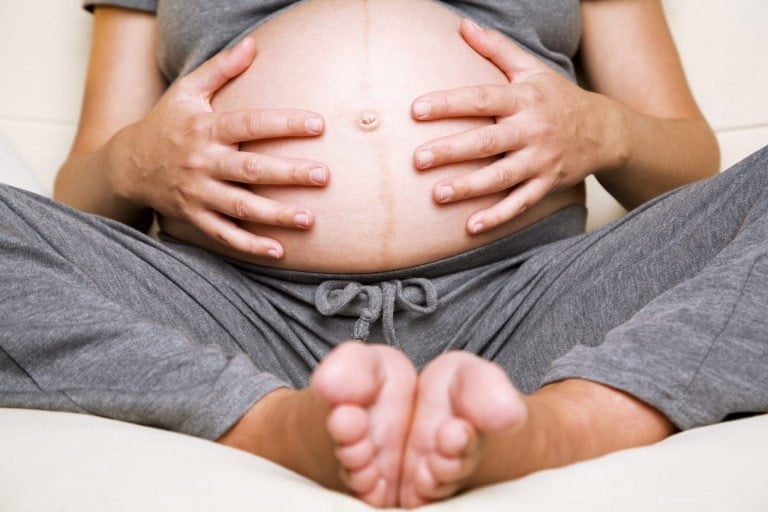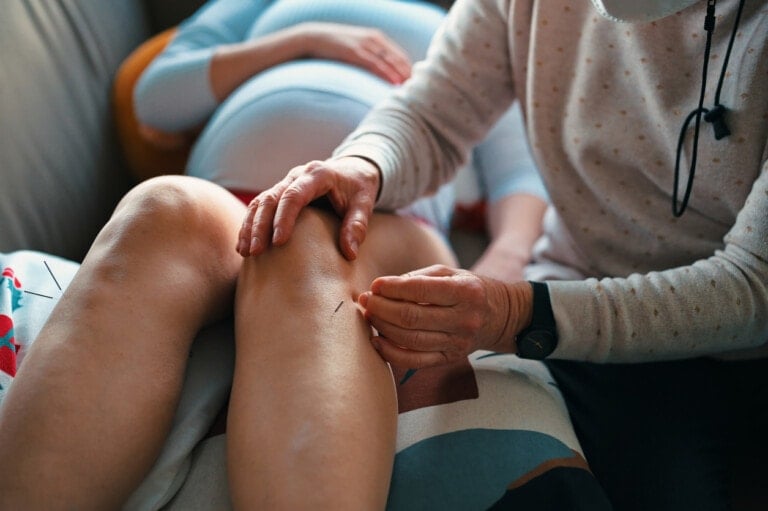Hemorrhoids are swollen veins, also called varicose veins, located within or outside of your rectum. You may feel an itchy or burning sensation around your anus, feel pain when you have a bowel movement, or see spots of blood on your toilet paper when you’re cleaning up. Internal hemorrhoids are located inside the rectum and generally don’t hurt. However, if they get pushed to the outside of the rectum or prolapse, it may be painful. External hemorrhoids are small, itchy lumps on the outside of the anus.
Pregnant and postpartum moms may experience hemorrhoids for the first time because of hormonal changes, pressure from a growing uterus, and constipation. These are all bodily changes that can contribute to the formation of varicose veins. The good news is that you can use personal attentiveness and home remedies to treat, reduce symptoms, and even eliminate hemorrhoids.
Why do pregnant and postpartum mamas get hemorrhoids?
Pregnant and postpartum mothers are susceptible to hemorrhoids because of hormonal changes, dietary changes that lead to constipation, straining during the third trimester and labor, and increased pressure from the growing fetus and uterus.
During pregnancy, a woman’s blood volume increases. This puts more pressure on the veins of the anal area and often resulting in swelling. Because of factors like changing hormones and changing diet, constipation can occur as well. When your body has difficulty pushing out a bowel movement, this causes the anal veins to become swollen and inflamed. Sometimes, this leads to the formation of uncomfortable hemorrhoids.
Similarly, the process of giving birth is not unlike going to the bathroom. For this reason, the strain that your body does during childbirth can also cause hemorrhoids.
Best Remedies to Treat Hemorrhoids
Many at-home remedies will help soothe and heal pregnancy and postpartum hemorrhoids if followed consistently for about a week. In just a few days, you will likely notice your symptoms getting better. However, if your symptoms persist and become more severe, be sure to consult your healthcare provider for the next steps.
Going to the bathroom . . .
Gentle Exercise
Consider doing gentle exercise if you need to make a bowel movement. This will help ease the process of passing a poop, reducing pain and straining. For example, take a short walk around your neighborhood. Or try a gentle, prenatal, or postpartum yoga class. Or do a gentle cardio exercise on T.V. at home. You can even lie down on your back on the floor and stretch. These options all help to warm up your low back, abdomen, intestines, and rectum. In addition, gentle movements and cardio can make passing a bowel movement much easier because blood is already flowing to the rectum, and your bowel muscles will be working with more ease.
Squatting
If you’re trying to have a bowel movement, consider squatting to poop. Place a step stool at the toilet, or purchase a Squatty Potty, and put your feet up on the stool while you sit on the toilet seat. This creates a squat position with your legs and abdominal area, which is actually our natural position for optimal pooping. Try not to lean back on the toilet. This has the reverse effect of squatting and can pinch your organs, leading to further constipation and pain.
Laxatives
Your doctor may recommend taking a laxative to pass easy bowel movements without any straining involved in some cases. This can give your hemorrhoids time to heal. Always consult your healthcare provider before taking a laxative when pregnant or postpartum.
After you pass a bowel movement . . .
Wet Wipes
Natural baby wipes, or hemorrhoid wipes like Tucks, can be excellent alternatives to toilet paper. Wet wipes soothe the rectum and also reduce inflammation. This can be a more comfortable alternative than dry, scratchy toilet paper when it comes to cleaning yourself.
Witch Hazel Compress
Like a wet wipe, soak an eye makeup pad in witch hazel, freeze it in the freezer, and place the witch hazel pad on your cleaned rectal area. You can lay down on your stomach and leave the pad on the affected area for 10-15 minutes for a cooling and calming experience. Witch hazel is astringent, with antimicrobial and anti-inflammation properties, excellent for treating hemorrhoids.
Perineal Bottle
A perineal bottle is typically an 8-ounce bottle with a nozzle that directs a stream of water or liquid product onto the affected area. Perineal bottles can be filled with clean, warm water to aid in the cleansing process after a bowel movement. In addition, they provide a nice alternative to toilet paper when you are suffering from soreness or hemorrhoids.
Coconut Oil
Coconut oil has antibacterial and anti-fungal properties that help reduce itching and inflammation and prevent infection. Apply a quarter-sized amount of coconut oil onto your cleaned anus to reduce symptoms and promote healing. Pure aloe vera without additives, or arnica gel, can also be used in place of coconut oil.
Before bedtime . . .
Bath
Taking a bath or massaging your low back before rest time can help soothe the muscles and swollen area of your rectum and digestive system. Specifically, a lukewarm or warm bath with oatmeal can relax your whole lower body and help clean and soothe your rectal area.
Sitz Bath
A sitz bath is a small tub that goes on the toilet seat, in which you can submerge your vaginal and anal area. Fill a sitz bath with ½ cup of Epsom salt and lukewarm water, soak for 5 minutes. Or add half a cup of apple cider vinegar to lukewarm to warm water for an astringent cleansing.
Gentle Massage
Consider asking a loved one or massage professional to massage your lower back. This will help increase blood flow, promote relaxation, and reduce soreness in the digestive system’s muscles. You can also do a self-massage or place a warm heating pad on your back to bring relief and comfort to your body.
Oil or Cream
After the full body or sitz bath, apply a natural oil (see Coconut Oil above) or an over-the-counter hemorrhoid cream or suppository containing hydrocortisone. Do not use an OTC steroid cream for more than a week unless directed by your healthcare professional, as steroid creams can thin your skin, causing more problems.
Can hemorrhoids be prevented?
Hemorrhoids cannot necessarily be prevented. But you can ease symptoms or attempt to stop them before they happen.
- Drink lots of water
- Exercise regularly
- Get enough magnesium and probiotics
- Eat daily fiber
Fiber is essential because it contains the roughage needed to pass easy bowel movements. It also has naturally occurring probiotics and vitamins like magnesium that are present in plant-based materials. Eat your fruits and veggies every day!
When should I see a medical professional?
If your symptoms have remained the same or worsened over the course of a week, or if you are experiencing excessive bleeding or severe pain at any time, please consult your medical professional immediately. Your doctor may perform a digital inspection by inserting a gloved, lubricated finger into your rectum. Or she may do a visual inspection by examining your lower colon and rectum with an anoscope, proctoscope, or sigmoidoscope. In addition, your doctor may suggest taking oral pain relievers such as acetaminophen, aspirin, or ibuprofen, or over-the-counter creams to relieve discomfort temporarily.













